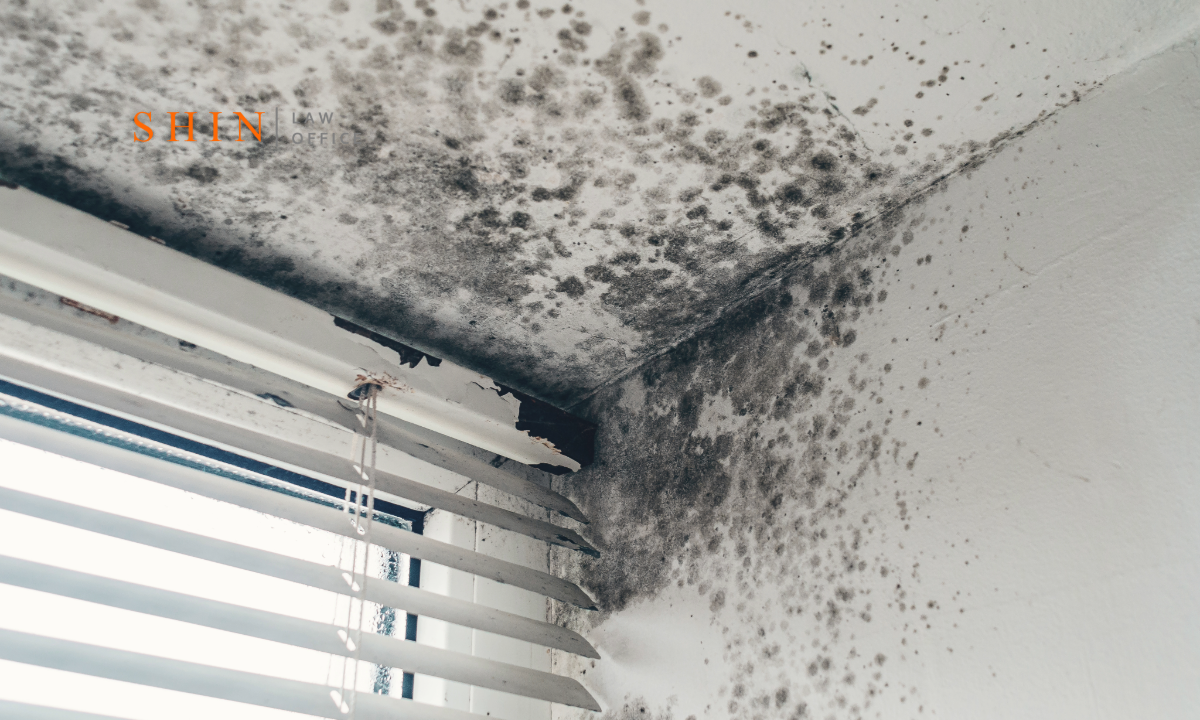By Anthony I. Shin, Esq. | Personal Injury Attorney | Shin Law Office
Woodbridge Apartment Mold Attorney
I work with tenants in Woodbridge who experience issues such as leaks, musty odors, and recurring mold.
In older apartment buildings, the pattern is familiar: water intrusion, slow or cosmetic repairs, and health problems that do not go away.
The core question is simple.
Who is responsible, and what can you do now?
What the law expects from landlords and tenants
Landlords must keep apartments fit and habitable.
That includes fixing leaks, controlling moisture, remediating visible mold with a professional process, and confirming the space is safe afterward.
Tenants also have duties.
You should use reasonable efforts to prevent moisture buildup, and you must notify the landlord promptly when you see leaks or mold.
Responsibility often turns on facts like maintenance history, ventilation, and the notices you sent.
Move-in and ongoing disclosures
At move-in, the landlord should disclose any known visible mold.
If mold is present, you are entitled to prompt remediation and a follow-up inspection that shows the area is clear.
During your tenancy, you may request records that show what was done, when it was done, and by whom.
These documents matter if problems come back.
Temporary relocation during remediation
When mold conditions affect health or safety, professional remediation may require temporary relocation.
In many cases, the landlord is responsible for arranging and paying for the safe cleanup and the short relocation period.
If the problem was caused solely by tenant neglect, cost responsibility can shift.
The facts decide this, not guesswork.
Do not withhold rent.
Withholding rent to force repairs can put your tenancy at risk.
The better path is documented notice, medical evidence where appropriate, and legal remedies that keep you protected while we push for compliance.
How mold in older Woodbridge apartments becomes a legal claim
Aging roofs, failing bath fans, window leaks, and saturated drywall create the perfect environment for mold.
When management paints over stains or delays real repairs, the mold returns, and so do symptoms: coughing, sinus infections, asthma flares, headaches, fatigue, and difficulty concentrating.
If the evidence shows the landlord failed legal duties, you can pursue remedies for repairs, temporary housing, medical costs, and damage to personal property.
What to do right now
- Document the conditions. Take clear photos and video of leaks, stains, bubbling paint, and visible mold. Keep a symptom log for your household.
- Give written notice. Email and send certified mail. Identify the rooms, the dates you first saw the issue, and request professional remediation with a follow-up inspection and written report.
- Request records. Ask for any move-in mold disclosure and any summary of prior remediation in your unit.
- Protect your health. See a clinician, follow medical advice, and keep all records.
- Stay current on rent. Preserve your legal position while we press for a proper fix.
- Call me. I will review your photos and notices and outline your options.
How I help tenants in Woodbridge
I investigate the building’s maintenance history, evaluate compliance with landlord obligations, and coordinate independent inspection when needed.
I advocate for genuine remediation, not superficial cover-ups.
When negotiations are not enough, I file claims to recover your costs and hold the landlord accountable.
My goal is simple.
A safe, dry home and a clear plan if management fails to deliver it.
If your Woodbridge apartment has mold, contact me.
I will move quickly to protect your health and your rights.
Call Shin Law Office today at 571-445-6565 or use our online contact form to schedule a consultation.

Principal Attorney | Shin Law Office
Call 571-445-6565 or book a consultation online today.




